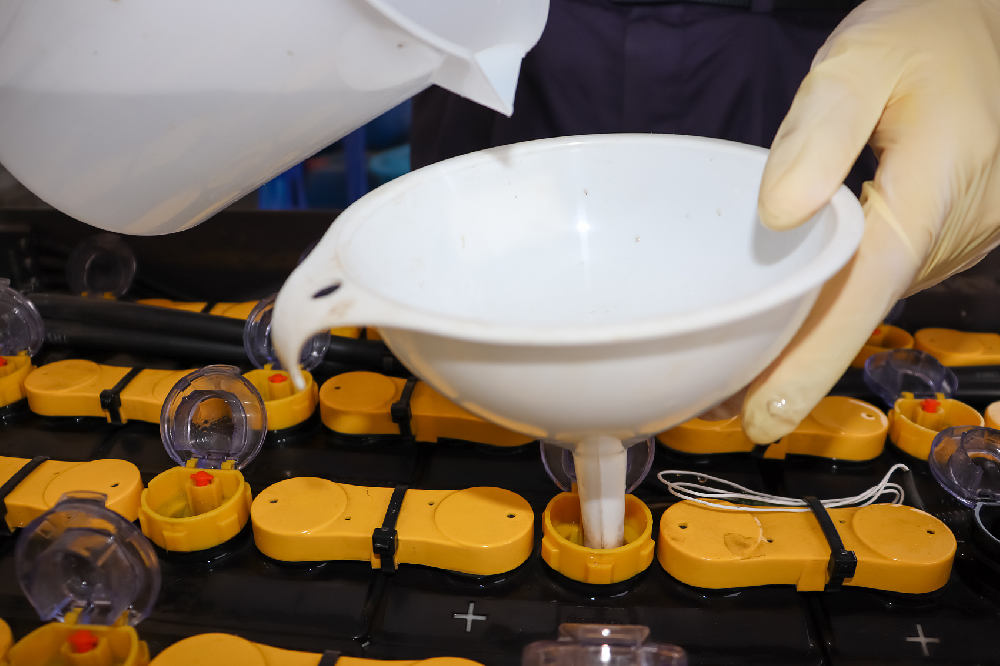Welcome to the website of Hubei Lham Energy Tech Co., Ltd. Our main products are automotive battery accessories and industrial battery maintenance products.
Global Consulting Hotline:0710-3313598

 News
NewsAs an important component of the vehicle's electrical system, the normal operation of the car battery is crucial for the vehicle's start-up and the use of various electronic devices. However, during use, the battery may run out of water.
When you find that there is no water in the battery, the first thing to do is to ensure safety. Before performing any operation, be sure to remove the positive and negative connection wires of the battery first to prevent short circuits and electric shock accidents.
Next, an appropriate amount of distilled water or a dedicated battery replenishment solution needs to be prepared. Never use tap water or mineral water, as they contain impurities and minerals that can damage the battery.
Then, open the battery cap and use a dedicated battery refilling tool to slowly inject distilled water or refilling solution into each cell of the battery. Be careful not to fill it too full. Generally speaking, the liquid level should be between the upper and lower scale lines.

After adding water, let the battery stand for a while so that the electrolyte can fully penetrate and mix. After that, you can reconnect the positive and negative terminal connection wires, start the vehicle, and let the generator charge the battery for a period of time to ensure that the battery can work normally.
If the battery is short of water and not dealt with in time, it will cause serious damage to the battery. The following table is used to understand the hazards of water shortage more intuitively:
The degree of water shortage damages the manifestations
Mild water shortage: The battery capacity decreases, the vehicle has difficulty starting, and the power supply to electronic devices is unstable.
Moderate water shortage: The sulfation of the plates intensifies, the internal resistance increases, the charging efficiency decreases, and the discharge capacity weakens.
Severe water shortage: Plate deformation, breakage, and even battery scrapping that cannot be repaired.
To prevent the battery from running out of water, it is necessary to regularly check the battery's condition during daily use. Especially during the hot season and when vehicles are frequently used, the frequency of inspections should be increased even more.
In conclusion, timely detection and proper handling of the problem of water shortage in car batteries can effectively extend the battery's service life and ensure the normal operation of the vehicle. At the same time, developing good vehicle usage and maintenance habits is also the key to ensuring the health of the battery.